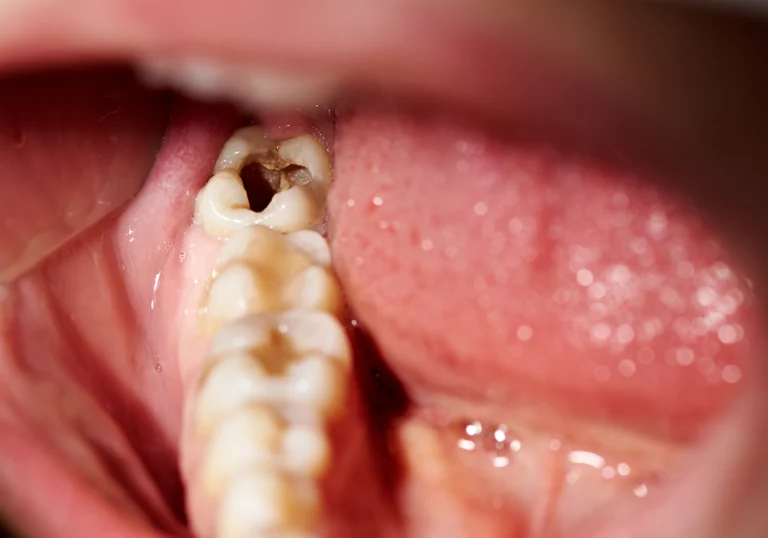Klonopin and Alcohol: Risks and Dangers
The use of Klonopin and alcohol together can have devastating consequences. Klonopin, a prescription benzodiazepine, is commonly used to treat anxiety, panic disorders, and certain seizure conditions.
Alcohol, on the other hand, is one of the most widely used substances in the world, often consumed socially or to relax. On their own, both substances slow down activity in the brain and central nervous system.
When combined, however, the depressant effects of Klonopin and alcohol amplify one another, leading to dangerous side effects, serious health risks, and even potentially fatal outcomes.
Understanding the risks of combining Klonopin and alcohol is critical for anyone prescribed this medication or for those who drink regularly. In places like Asheville, North Carolina, where both prescription drug use and alcohol consumption are prevalent, awareness and prevention can save lives. Explore this helpful guide from Oasis Recovery Center.

What Is Klonopin and Why Is It Prescribed?
Klonopin, the brand name for clonazepam, is a benzodiazepine medication prescribed for conditions such as:
- Generalized anxiety disorder (GAD)
- Panic disorder
- Epileptic seizures
- Sleep-related issues in some cases
Klonopin works by enhancing the activity of gamma-aminobutyric acid (GABA), a neurotransmitter that slows down nerve activity in the brain. This produces a calming effect that helps reduce anxiety, ease panic, and prevent seizure episodes.
While effective, Klonopin also carries a high risk of misuse and dependence. Because it calms the mind and body, many people begin to use it outside of medical supervision or combine it with substances like alcohol to enhance the effects—something that is extremely dangerous.
How Alcohol Affects the Body and Brain
Alcohol is also a central nervous system (CNS) depressant. It slows brain activity, impairs motor coordination, reduces reaction times, and alters judgment. While some people use alcohol socially or to “take the edge off,” heavy drinking or mixing it with other CNS depressants like Klonopin can result in unpredictable and dangerous effects.
Some of alcohol’s impacts include:
- Impaired judgment and decision-making
- Slowed breathing and heart rate
- Reduced coordination, balance, and reflexes
- Memory problems and blackouts
- Risk of liver damage with long-term heavy use
When paired with Klonopin, these effects do not just add up—they multiply, creating a synergistic danger that can quickly spiral into an emergency.

Why Mixing Klonopin and Alcohol Is So Dangerous
The combination of Klonopin and alcohol is especially hazardous because they both target the central nervous system in similar ways.
Rather than balancing each other out, their depressant effects stack together, creating a compounded impact that is far stronger than either substance alone. This interaction can intensify sedation to the point of extreme drowsiness, loss of coordination, or complete unconsciousness.
More critically, it can impair vital functions such as breathing, heart rate regulation, and the body’s ability to maintain consciousness. Many people mistakenly assume that because alcohol is legal and Klonopin is a prescribed medication, the risks of using them together may not be severe.
In reality, the interaction between Klonopin and alcohol can quickly escalate from mild side effects to life-threatening emergencies like respiratory failure or overdose, even at doses that might seem small on their own. This is why medical professionals strongly warn against combining the two under any circumstances.
Increased Sedation and Drowsiness
Both substances induce drowsiness, which may seem manageable when taken separately but becomes extremely dangerous when combined. When Klonopin and alcohol are used together, the level of sedation can be so severe that a person may struggle to keep their eyes open, stay alert, or even remain awake during normal daily activities.
This overwhelming fatigue can progress to sudden loss of consciousness, leaving individuals vulnerable to accidents or medical emergencies without warning.
Tasks that require focus and coordination, such as driving a car, cooking, or even walking across a room, become high-risk activities because the body and brain are too impaired to respond quickly to danger. Falls, car crashes, and other preventable accidents are common outcomes of this type of impairment.
In some cases, the sedation caused by Klonopin and alcohol can be so profound that it mimics a near-comatose state, placing the individual in immediate medical danger. What may begin as “just feeling sleepy” can escalate into a situation where someone is unable to protect themselves or call for help if their condition worsens.
Impaired Coordination and Judgment
The mix can result in poor decision-making, risky behaviors, and accidents. People who combine Klonopin and alcohol are far more likely to injure themselves or others.
Respiratory Depression
One of the most dangerous risks is slowed or shallow breathing. In severe cases, breathing can stop entirely, leading to coma or death.
High Overdose Risk
Overdosing is a real and immediate danger when combining Klonopin and alcohol. Even if the individual doses seem small, the way the two substances interact can overwhelm the body.
Short-Term Health Effects of Klonopin and Alcohol
Even in the short term, mixing these substances creates serious risks. Some of the most common effects include:
- Cognitive impairment: Difficulty concentrating, confusion, or inability to remember simple details.
- Physical symptoms: Dizziness, slurred speech, extreme fatigue, or nausea.
- Behavioral changes: Irritability, impulsivity, or aggression caused by impaired judgment.
- Increased accident risk: Falls, car crashes, and workplace injuries are much more likely.
Short-term use may seem harmless at first, but even a single occasion of mixing Klonopin and alcohol can lead to life-threatening emergencies.

Long-Term Consequences of Mixing Klonopin and Alcohol
When Klonopin and alcohol are used together repeatedly, the risks compound and can lead to lasting damage.
Dependence and Addiction
Both substances carry strong addictive potential. Combining them increases the risk of physical dependence, tolerance, and eventual addiction. This can make it extremely difficult to stop without professional treatment.
Organ Damage
The liver and kidneys work overtime to process these substances. Over time, long-term misuse can cause significant liver damage, cardiovascular strain, and other systemic health problems.
Mental Health Decline
Ironically, the same conditions Klonopin is meant to treat—like anxiety and panic—can worsen with prolonged misuse. Combined use with alcohol can fuel depression, heighten anxiety, and increase suicidal thoughts.
Social and Relationship Strain
Substance misuse doesn’t just affect health; it can harm careers, family relationships, and finances. Many people who misuse Klonopin and alcohol experience job loss, conflict at home, and isolation from loved ones.
Warning Signs of Klonopin and Alcohol Misuse
Recognizing the signs early can help prevent further harm. Some red flags include:
- Frequently mixing medication with alcohol despite warnings
- Blackouts or memory loss after drinking
- Increased tolerance and needing higher doses for the same effect
- Withdrawal symptoms when not using one or both substances
- Loved ones expressing concern about use
If you or someone you know is experiencing these signs, seeking help is essential.
Safe Practices and Alternatives to Avoid Klonopin and Alcohol Risks
Avoiding Concurrent Use
The safest and most effective step is to never mix Klonopin and alcohol. If you’re prescribed Klonopin, always follow your doctor’s instructions closely and avoid alcohol altogether.
Education and Awareness
Understanding the dangers is key. Sharing this knowledge with friends and family can create a strong support network to encourage safer habits.
Proper Medication Storage
Store Klonopin in a secure location to prevent misuse by others in your household, especially teens or young adults who may not understand the risks.
Safer Alternatives and Supportive Options
Consult a Healthcare Provider
If you have concerns about drinking while prescribed Klonopin, speak directly with your healthcare provider. They can suggest alternative treatments, adjust your dosage, or recommend safe approaches to managing your symptoms.
Lifestyle Changes
Non-medication approaches like exercise, mindfulness, yoga, or stress management can help reduce anxiety and improve overall well-being without relying on substances.
Therapy and Support Groups
Therapists, counselors, and support groups can provide healthier coping tools and emotional support. Local community programs in Asheville offer group therapy and recovery resources.
FAQs About Klonopin and Alcohol
Can I drink alcohol while taking Klonopin?
No. It is unsafe to drink alcohol while taking Klonopin because the combined depressant effects can lead to respiratory failure, overdose, or death.
What should I do if I accidentally mixed Klonopin and alcohol?
Seek emergency medical help immediately. Call 911 or go to the nearest hospital. Quick action can save lives.
Are there other substances I should avoid with Klonopin?
Yes. Other CNS depressants, including opioids, other benzodiazepines, sleep aids, and some muscle relaxants, should be avoided. Always consult your doctor for a complete list.

Why You Should Never Mix Klonopin and Alcohol
Understanding why Klonopin and alcohol are a dangerous combination is critical for making safe, informed decisions. Even if the intent is simply to relax or unwind, the risks far outweigh any temporary relief. From respiratory depression and overdose to long-term organ damage and addiction, the consequences are serious and life-threatening.
If you or a loved one is struggling with Klonopin, alcohol, or both, help is available at Oasis Recovery Center, located in Asheville, North Carolina. Professional treatment, community support, and healthier coping strategies can lead to recovery and a safer, healthier life.
For more information or immediate assistance, contact us today or call to speak with a member of our dedicated team.







